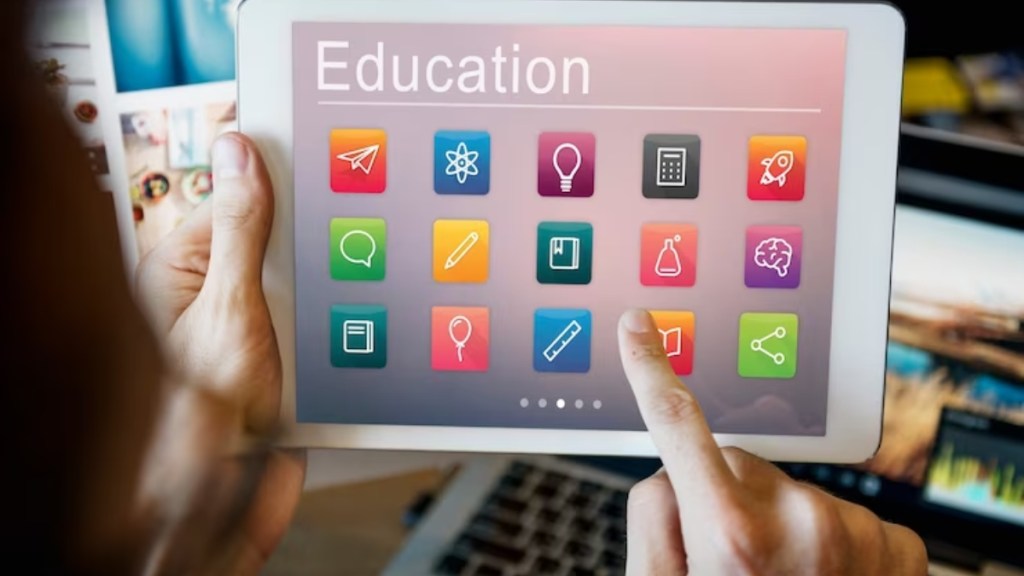By Monica Malhotra Kandhari
This year has been phenomenal for the EdTech industry worldwide, with various game-changing innovations altering how students learn. This evolution has been a catalyst for transforming traditional learning methods. With the global EdTech market reaching $133 billion in 2023 and expected to grow upwards to $433 billion by 2030, the future looks promising for the industry. As we look forward to 2024, the education sector will witness many groundbreaking innovations, redefining the way we learn and teach.
- Nano Learning: The new academic world, influenced by Gen Z preferences, leans towards concise and engaging learning styles. As attention span shrinks, students now prefer focused, easily digestible content like short videos and podcasts for information, balancing efficiency with depth. Therefore, educators are shifting to interactive, visually appealing formats, meeting modern learning preferences and creating an inclusive environment.
- Immersive Learning: The integration of virtual and augmented reality (VR/AR) is all set to revolutionise traditional classrooms. Imagine students going on virtual field trips to historical sites, exploring the ocean depths or dissecting an organism in a lifelike simulation. These immersive technologies will engage students in ways that traditional teaching methods could scarcely achieve.
- Quantum Computing: Data holds the potential to flip our realities, notably in education where teachers would gain valuable insights into a student’s daily performance. These meaningful insights can drastically enhance the learning journey by revealing patterns and identifying crucial learning gaps that influence academic outcomes. This is where Quantum Computing’s ability to process vast datasets offers unprecedented techniques on individual learning paths and the overall efficacy of teaching methodologies.
- Gamification of Learning: There is a boom in the form of gamification of education. If harnessed appropriately, it will transform the learning experience by integrating game-like elements, such as badges, leaderboards and rewards, promising increased engagement and motivation among learners. This kind of interactive involvement not only makes learning enjoyable but also creates a feeling of active participation and critical thinking. Such platforms also urge learners to set goals, monitor progress, and engage in friendly competition, providing a sense of accomplishment.
- Blending Virtual and Physical Education: Due to the recent pandemic, hybrid learning has fueled the evolution of Learning Management Systems (LMS). Currently, it seamlessly integrates in-person and virtual learning. So, moving ahead, these advanced systems will blur the boundaries even more between traditional classroom interactions and online resources. Such technologies will empower teachers to deliver immersive learning experiences across various subjects.
- Collaborative Learning Interactions: The future of education will focus on collaboration and social interaction among students. This will facilitate group projects, peer-to-peer learning and global connectivity while learning, mirroring the collaborative dynamics of real-world work environments.
- Focus on Mental Wellness: In the contemporary world, mental health is taking centre stage in every aspect of life. Similarly, in academics, EdTech platforms will balance education with resources and tools to support the emotional needs of students in the future. For eg. built-in mindfulness exercises, stress-relief techniques and mental health resources parallel to the academic offerings.
- Blockchain for Security: The entry of blockchain technology in the education world will facilitate the way credentials of various EdTech platforms are stored and verified. Digital certificates and badges stored on a blockchain mechanism will authenticate the students, ensuring transparency, security, and easy verification for institutions.
As we stand on the cusp of 2024, the EdTech sector promises an era of transformative changes in the education world. These futuristic trends will make education even more accessible, engaging and effective for the next-gen students everywhere. The fusion of technology and education is not merely about embracing innovation; it is about reshaping the future of learning itself.
The author is the Managing Director, AASOKA & MBD Group
